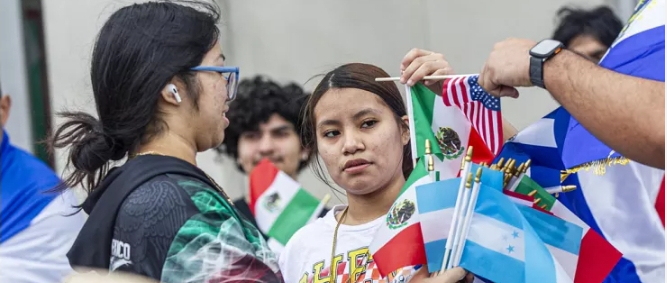Latin American leaders called for unity amid global tensions, with Sheinbaum condemning U.S. migrant policies. Trump's 90-day tariff suspension, excluding China, added to trade and sovereignty concerns.
Latin American Leaders Call for Solidarity Amid U.S. Trade and Migration Struggles


The meeting, which was attended by 11 heads of state and 20 representatives from Latin America and the Caribbean, brought together a bloc known as the Community of Latin American and Caribbean States. The summit was marked by a strong call to put aside regional differences in the face of mounting global tensions. President Claudia Sheinbaum of Mexico emphasized, “Today more than ever is a good time to recognize that Latin America and the Caribbean require unity and solidarity.”
In the midst of this gathering, former President Donald Trump made headlines on Wednesday by announcing the suspension of his global tariffs for 90 days on most countries, excluding China, which saw a sharp increase in tariffs to 125%. This move is part of the ongoing trade war between the United States and China, signaling another escalation in their economic standoff.
Despite the temporary suspension of tariffs, resentment still simmers among many of the U.S.'s trading partners and allies. These countries have begun to look for other reliable trade alternatives, driven by the uncertainty they face under the Trump administration's policies. Adding to the growing economic turmoil are widespread frustrations over Trump's deportation tactics, which have become an increasing subject of legal scrutiny and human rights criticisms. Furthermore, there are moves by his administration that some critics argue infringe on the sovereignty of foreign nations.
In a video message, Venezuelan President Nicolás Maduro, who did not attend the summit, condemned the U.S. administration's persecution of Venezuelan migrants. President Sheinbaum, during the summit, reiterated the need for cooperation among Latin American countries and emphasized the importance of addressing the structural causes of migration. She also rejected the "criminalization of brothers and sisters of our continent who for some reason have had the need to migrate north."

 বাংলা
বাংলা  Spanish
Spanish  Arabic
Arabic  French
French  Chinese
Chinese 
